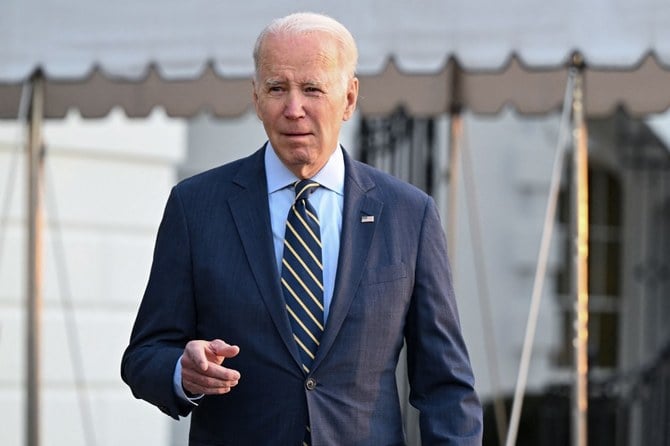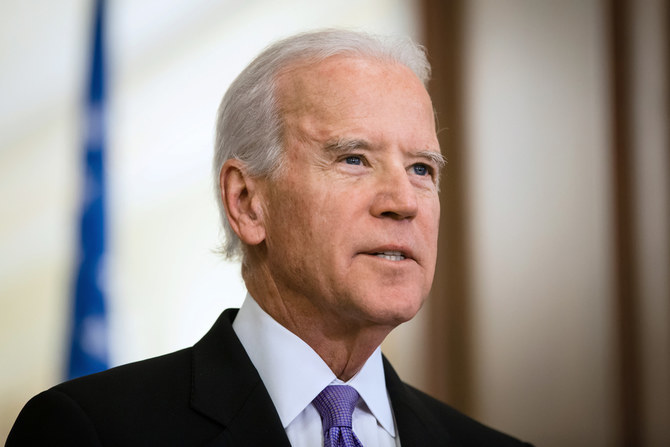
As US President Joe Biden nears 11 months in the White House, two views have emerged of his administration’s foreign policy.
The first emphasizes his vision to draw the attention of the world to the new challenges facing humankind, such as cybersecurity and the protection of the environment. The second is to bring an end to many of the old problems he inherited from his predecessors, such as the conflict in Syria, the dispute between Russia and Ukraine, and other regional disputes.
According to the many statements issued by members of Biden’s foreign policy team, the focus on these two tracks of diplomacy will help America formulate foreign policies that can help it stand up to the growing power of China, which is undermining US influence all over the world. So far, Biden has not been able to deliver on the foreign policy tasks that he defined as being the priority.
As Politico magazine stated last week: “The new president’s team has doggedly tried to push forth with its agenda: Biden has made a pair of trips to Europe to strengthen ties with allies and pledge cooperation to combat climate change. On Monday, the White House announced a diplomatic boycott of the upcoming Olympics as a protest to human rights abuses in China. And the president on Thursday launches a two-day Summit for Democracy meant to rally free nations, which has already drawn the ire of Beijing.”
There are many mistakes the Biden administration has made that have hampered its chances of foreign policy successes.
First, Biden introduced his two foreign policy goals as being conflicting. Instead, he should have established a link between them. For instance, if he is interested in raising global awareness about the safeguarding of the environment, he should do so alongside China. The exclusion of the most populous nation in the world throws doubts on efforts to protect the environment, since China emits more carbon dioxide than any other country on the planet.
Biden sounds as though he is incapable of solving the many old and new problems in world politics. For example, he has not been able to shake off accusations that he could have prevented the return to power of the Taliban in Afghanistan. And he has not persuaded Russian President Vladimir Putin to end cyberattacks by Russian hackers.
Moreover, Biden gives the impression that he is not capable of dealing with Iran as far as its nuclear program is concerned. He has to conclude the ongoing negotiations with Tehran in a satisfactory way. Otherwise, nations around the world will perceive American foreign policy as being too hesitant to confront Iran’s nuclear ambitions, which could be harmful to the national security of many Arab countries, especially those in the Gulf. A good nuclear deal with Iran could boost the credibility of the Biden administration and help it overcome a thorny issue. This would allow it to devote more time and resources to target new US foreign policy goals.
On the environment, he must do more than gather up a few good suggestions. There is a need to motivate more countries to do more to tackle climate change. Currently, not enough nations are committed to protecting the environment.
There also has to be a candid admission that there are many problems that are difficult to resolve. The gravity of this theme should spur other nations not to back away from cooperation with the US in order to settle such matters. This approach to foreign policy can avoid aggravating these disputes.
Certainly, it is impossible for the US to solve the world’s problems alone. The Biden administration must realize that there are limitations on what it can accomplish with its foreign policy. Worldwide problems tend to last longer than a single US presidential administration.
Importantly, Biden should not demand that every country abide by its concept of democracy. Nations apply the principles of democracy in different ways according to their historical conditions and contemporary circumstances.
The Biden administration should work gradually and methodically to change the situations surrounding many of these old and new foreign policy dilemmas, whether by stopping the damage Hezbollah is doing to Lebanon and Syria or drafting regional and bilateral treaties that can make it obligatory for nations to thwart cyberattacks against other states.
Finally, the Biden administration must ensure there is an incentive for other countries to join America in its challenge to China. What can they gain from the standoff between Washington and Beijing?
Biden already has a very tough task in terms of US foreign policy. And if the Democrats lose their majority in the two houses of Congress in the legislative elections next November, Biden will probably not be able to pass any new laws related to America’s foreign policy challenges.
Maria Maalouf is a Lebanese journalist, broadcaster, publisher, and writer. She holds an MA in Political Sociology from the University of Lyon. Twitter: @bilarakib
Disclaimer: Views expressed by writers in this section are their own and do not necessarily reflect Arab News" point-of-view












